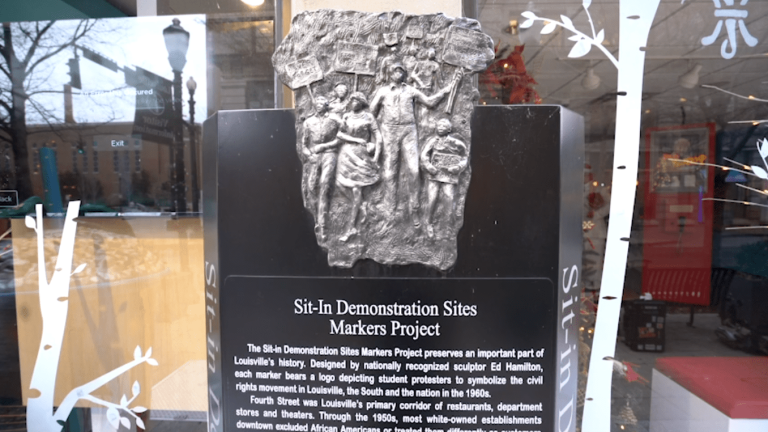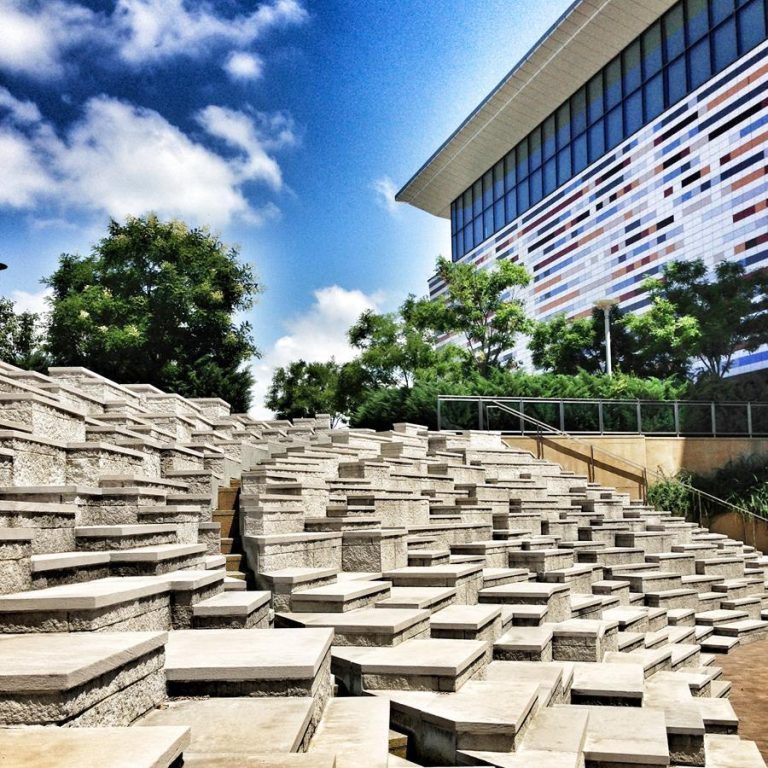During the early 1960s, Louisville was the site of a series of demonstrations and protests urging for social change in the segregated communities. Fourth Street was the main business area, filled with shops and restaurants, many of which treated Black customers differently, including not letting them sit at lunch counters or try on clothing. Activists initiated a voter registration campaign in 1961 that elected a new mayor and a new board of aldermen. And on May 1, 1963, the first public accommodations ordinance in Louisville, as well as in the South, was passed. While many of those businesses are no longer there, the Louisville Downtown Civil Rights Trail preserves the legacy of those who fought for change with the placement of 11 historical markers in the downtown area that tell the story of this significant movement.
Through guided tours and self-guided experiences, students can engage with their community’s rich history of civil rights efforts. One of the trail’s highlights is the opportunity for students to visit iconic locations such as the Muhammad Ali Center, which celebrates the life and legacy of the renowned boxer and civil rights advocate. The center offers educational programs that explore themes of social justice, respect, and community engagement.
Additionally, students can learn about the role of local activists and organizations that contributed to the broader Civil Rights Movement, helping them connect historical events to contemporary social issues field trips by utilizing resources provided by the Louisville Downtown Civil Rights Trail, including lesson plans and activity guides that focus on critical thinking and discussion about civil rights issues. These materials encourage students to analyze historical documents, reflect on the significance of civil rights milestones, and consider their implications in today’s society.



